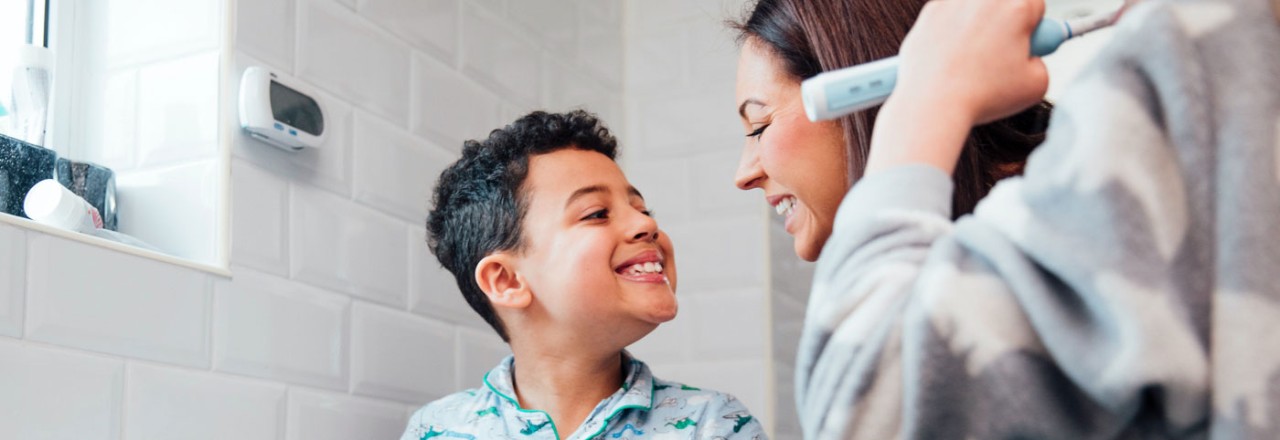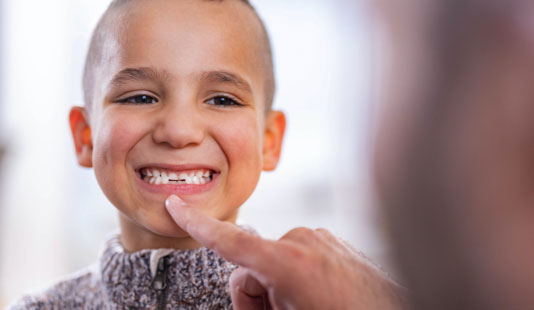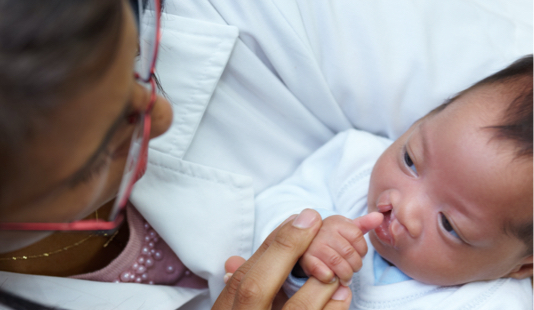Make brushing fun for kids
Having trouble getting your little one to brush their teeth? You’re far from alone.

Nearly 80% of children ages 3 to 5 begin brushing their teeth at an age older than recommended, according to a 2019 study by the Centers for Disease Control and Prevention. Similarly, the study found that about one third of children only brush once, as opposed to the recommended two times daily.
Tips & tricks
If you feel challenged getting your child to brush his or her teeth, try some of these tips:
- Trade places. Tired of prying your way in whenever it's time to brush your child’s teeth? Why not reverse roles and let your child brush yours? Show your child how much you love the process and result of brushing.
- Make it a group activity. Make sure your kids see you brushing your own teeth, and then make a point of showing off your shiny, clean teeth. Ham it up! Make it seem like a privilege to have a bright smile. And encourage your kids to show off their own smiles, after their teeth are clean.
- Incentivize it. Track your child’s brushing. If they brush for a full two recommended minutes twice a day for a week, give them a little power and let them choose the next game, movie or meal for a family activity.
- Give kids more ways to participate. If your child is able, let him or her squeeze the paste onto the toothbrush before you start brushing. This gives your child a sense of participating in the toothbrushing process. Remember: Kids ages 3 to 6 only need to use up to a pea-sized amount of toothpaste.
- Take turns. Set an egg timer or other alarm and have your kids brush their teeth on their own for 30 seconds. Then you brush their teeth for 30 seconds. Repeat this at least twice, or go as long as your child will tolerate. When brushing at bedtime, it’s important that you have the last turn. Saliva production slows down during the sleep cycle and can't wash away as much plaque. So it's important to make teeth as plaque-free as possible before going to sleep.
- Call in reinforcements. If older children stubbornly neglect to brush or floss and reminders fall on seemingly uninterested ears, maybe it’s time to change the messenger. Call the dental office before your child’s next checkup, and let the dentist know what’s going on. The same motivational message might be heeded if it comes from a third party.
- Keep it gentle. Children’s teeth and gums can be sensitive. Make sure that they use a soft-bristled toothbrush. Running warm water over it before starting to brush will soften the bristles. In addition, plaque is soft and is better removed by thorough but light brushing than by vigorous scrubbing, which can cause unwanted wear on teeth.
While creating good oral health habits with children can be frustrating, starting these practices from a young age is crucial. As soon as your child’s first tooth emerges, it’s time to take care of it.
Tips for Tiny Teeth
Learn the basics of good oral health care to create smiles that last a lifetime.
Last updated July 21, 2021
Related articles:
The oral health information on this website is intended for educational purposes only. Always consult a licensed dentist or other qualified health care professional for any questions concerning your oral health.


